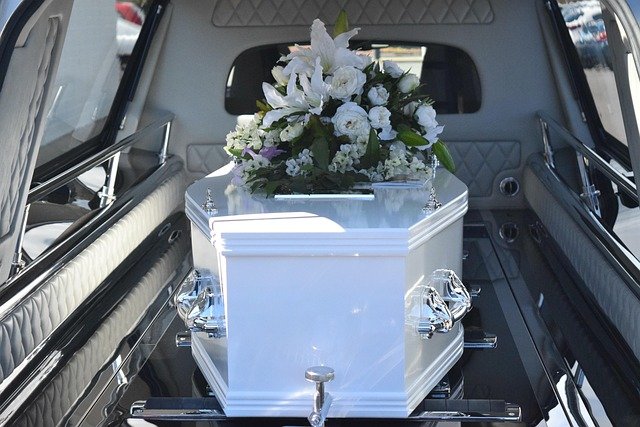Curious About Cremation Costs in Your Area?
Cremation costs can vary widely depending on your location, service type, and provider. Whether you are planning ahead or exploring options for a loved one, understanding local pricing can help you make informed decisions with confidence and clarity today.

Why Are More People Choosing Cremation?
The shift toward cremation reflects changing social attitudes, practical considerations, and economic factors. In Australia, cremation rates have steadily increased over the past decades, with many families appreciating the flexibility it offers for memorial services and final arrangements.
Environmental consciousness plays a significant role in this trend, as cremation generally requires less land use compared to traditional burial. Many people also value the portability aspect, allowing families to keep cremated remains close or scatter them in meaningful locations. The reduced ongoing maintenance costs associated with cremation, compared to perpetual grave care, also appeal to families seeking practical solutions.
Cultural shifts toward less formal religious practices have contributed to cremation’s popularity, as it accommodates various spiritual beliefs and memorial preferences. The ability to hold memorial services at different times and locations provides families with greater flexibility in planning celebrations of life.
What Factors Influence the Cost of Cremation?
Multiple variables affect cremation pricing across different regions in Australia. Location significantly impacts costs, with metropolitan areas typically charging higher rates than regional centres due to operational expenses and demand levels.
Service type represents the most substantial cost factor. Direct cremation, involving minimal services and basic arrangements, costs considerably less than full-service cremation with viewing, ceremony, and additional amenities. The choice of crematorium facility, coffin materials, and memorial products all influence final pricing.
Timing can affect costs, with some providers offering different rates for various days or times. Additional services such as transportation, death certificates, celebrant fees, and memorial products create variable pricing structures. Some crematoriums charge extra for weekend or holiday services, while others maintain consistent pricing regardless of timing.
The crematorium’s facilities and amenities also impact pricing, with modern facilities featuring chapel services, viewing rooms, and enhanced comfort typically charging premium rates compared to basic cremation-only facilities.
How Much Does Cremation Typically Cost?
Cremation costs in Australia range significantly based on service levels and geographical location. Direct cremation, representing the most economical option, typically costs between $1,500 and $3,500, covering basic cremation services without ceremonies or additional amenities.
Full-service cremation, including chapel ceremonies, celebrant services, and viewing opportunities, generally ranges from $4,000 to $8,000. Premium services with extensive memorial options, high-quality coffins, and enhanced facilities can exceed $10,000.
Regional variations create substantial price differences across Australia. Major cities like Sydney and Melbourne typically feature higher costs due to operational expenses and property values, while regional areas often offer more affordable options. However, limited competition in smaller towns can sometimes result in higher prices despite lower operational costs.
Package deals often provide better value than individual service selections, with many providers offering comprehensive cremation packages at competitive rates. These packages typically include essential services like transportation, cremation fees, basic coffins, and death certificates.
| Service Type | Provider Example | Cost Estimation |
|---|---|---|
| Direct Cremation | InvoCare (White Lady Funerals) | $2,200 - $3,200 |
| Standard Service | Propel Funeral Partners | $4,500 - $6,500 |
| Premium Package | Guardian Funerals | $6,000 - $9,000 |
| Basic Cremation | Local Independent Providers | $1,800 - $3,000 |
Prices, rates, or cost estimates mentioned in this article are based on the latest available information but may change over time. Independent research is advised before making financial decisions.
What Are the Additional Costs to Consider?
Beyond basic cremation fees, several additional expenses contribute to total costs. Death certificates typically cost between $30 and $50 each, with families often requiring multiple copies for legal and administrative purposes.
Transportation fees vary based on distance and timing, with standard transfers within metropolitan areas ranging from $200 to $500. After-hours or long-distance transportation incurs additional charges. Some providers include basic transportation in package deals, while others charge separately.
Memorial products represent significant additional expenses. Urns range from $100 for basic models to over $1,000 for premium materials and designs. Memorial plaques, garden memorials, and keepsake jewellery add further costs based on personal preferences and quality levels.
Celebrant or clergy fees typically range from $300 to $800, depending on ceremony complexity and duration. Flower arrangements, photography services, and catering for memorial gatherings create additional expenses that families should consider when budgeting.
Administrative costs including permits, crematorium fees for extended chapel use, and specialized services like witness cremation or expedited processing contribute to final expenses. Music licensing, audio-visual equipment rental, and printed materials for memorial services also add to total costs.
Understanding cremation costs in your area requires research into local providers, service options, and additional expenses. Comparing packages from multiple providers helps families find appropriate services within their budgets while ensuring dignified arrangements. Planning ahead often provides cost savings and reduces stress during difficult times, allowing families to focus on celebrating their loved ones’ lives rather than managing unexpected financial pressures.




